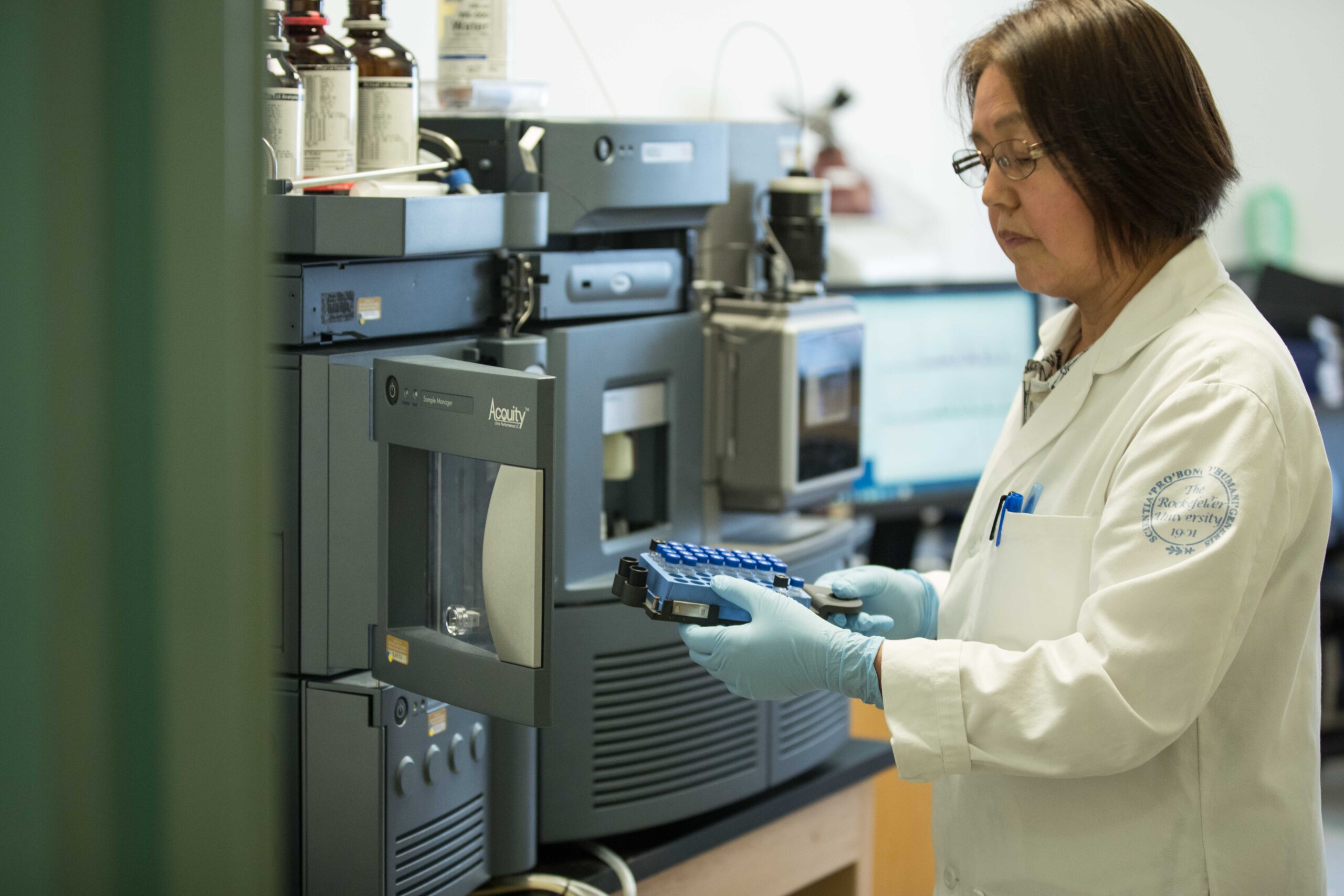
More than 170 million women around the world use contraceptives developed by the Center for Biomedical Research (CBR) or based on our technologies.
Still, 200 million women worldwide have an unmet need for a modern method of contraception; 1.5 million people are newly infected with HIV every year; and more than 1 million people acquire a sexually transmitted infection every day.
A range of product options is essential to tackle the ongoing burdens of unintended pregnancy, HIV, and sexually transmitted infections. CBR’s innovations offer individuals with options that meet their needs and protect sexual and reproductive health at various points in their lives. Most recently, the Council has secured regulatory approvals of Annovera®, the one-year contraceptive vaginal ring, and DapiRing™, the one-month vaginal ring that can reduce the risk of HIV acquisition.
CBR researchers develop the next generation of safe, effective contraception and HIV and STI prevention options. Products in development include:
Next-generation female contraceptive products
New contraceptive methods can help millions of women with an unmet need for contraception and millions more who may be dissatisfied with current methods.
- A 3-month Nestorone®/estradiol intravaginal ring to prevent unintended pregnancy is in clinical development. This ring is designed to have fewer side effects compared to ethinyl estradiol products currently on the market.
- A Nestorone®-only vaginal ring for contraception in those who have estrogen sensitivities, those who are at higher risk of venous thromboembolism (VTE), and postpartum breastfeeding women.
New approach to male contraception
CBR addresses the lack of reversible contraceptive options for men.
- A transdermal Nestorone®/Testosterone gel applied daily to the shoulders is currently in clinical trial. The gel would be a novel, easy-to-use, reversible contraceptive method and would be the first-of-its-kind contraceptive option for men.
Innovative multipurpose prevention technologies
CBR researchers lead the development of a new generation of multipurpose prevention technologies (MPTs) that protect against HIV, other STIs, and/or unintended pregnancy.
- A dual-prevention pill for the prevention of pregnancy and HIV created by co-formulating pre-exposure prophylaxis for HIV with levonorgestrel and ethinyl estradiol for contraception.
- A vaginal ring for the prevention of pregnancy and HIV containing Etonogestrel, ethinyl estradiol, and QGriffithsin (EEQ IVR). QGriffithsin is a naturally occurring algae-derived protein that inhibits HIV and other pathogens, including herpes simplex virus. QGriffithsin could eliminate the risk of HIV drug cross-resistance.
- A non-hormonal intravaginal ring—incorporating inexpensive active pharmaceutical ingredients that operate in combination—with the potential to offer contraceptive activity and broad anti-microbial activity against chlamydia, gonorrhea, herpes-simplex virus-2, HIV, and bacterial vaginosis.
- A user-controlled Dapivirine-Levonorgestrel Vaginal Ring that can prevent pregnancy and reduce the risk of HIV for up to 3 months.
Novel HIV prevention methods
In addition to the marketed DapiRing™, a one-month vaginal ring that can reduce the risk of HIV acquisition, Council researchers are developing new methods of HIV prevention.
- A three-month dapivirine vaginal ring as a line-extension of the monthly dapivirine vaginal ring.
Additional indications
Council researchers have decades of experience working with active pharmaceutical ingredients for contraception and HIV and STI prevention. Through this work, our researchers explore other health uses for these active pharmaceutical ingredients.
- A Nestorone® formulation to treat multiple sclerosis (MS), reduce symptoms, and delay disease progression as an adjuvant therapy to existing MS disease-modifying agents.
- A Nestorone® formulation to prevent preterm birth, the leading cause of death for children under 5 worldwide.